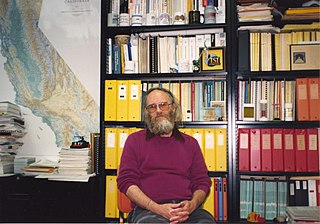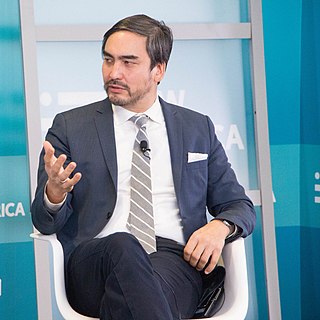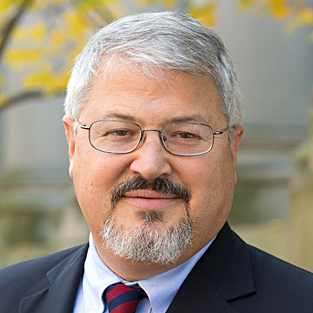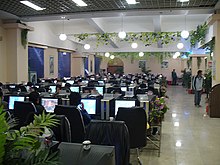
Freenet is a peer-to-peer platform for censorship-resistant, anonymous communication. It uses a decentralized distributed data store to keep and deliver information, and has a suite of free software for publishing and communicating on the Web without fear of censorship. Both Freenet and some of its associated tools were originally designed by Ian Clarke, who defined Freenet's goal as providing freedom of speech on the Internet with strong anonymity protection.

The Internet Corporation for Assigned Names and Numbers is an American multistakeholder group and nonprofit organization responsible for coordinating the maintenance and procedures of several databases related to the namespaces and numerical spaces of the Internet, ensuring the network's stable and secure operation. ICANN performs the actual technical maintenance work of the Central Internet Address pools and DNS root zone registries pursuant to the Internet Assigned Numbers Authority (IANA) function contract. The contract regarding the IANA stewardship functions between ICANN and the National Telecommunications and Information Administration (NTIA) of the United States Department of Commerce ended on October 1, 2016, formally transitioning the functions to the global multistakeholder community.

Jonathan Bruce Postel was an American computer scientist who made many significant contributions to the development of the Internet, particularly with respect to standards. He is known principally for being the Editor of the Request for Comment (RFC) document series, for Simple Mail Transfer Protocol (SMTP), and for administering the Internet Assigned Numbers Authority (IANA) until his death. During his lifetime he was referred to as the "god of the Internet" for his comprehensive influence; Postel himself noted that this "compliment" came with a barb, the suggestion that he should be replaced by a "professional," and responded with typical self-effacing matter-of-factness: "Of course, there isn’t any 'God of the Internet.' The Internet works because a lot of people cooperate to do things together."
Kazaa Media Desktop is a discontinued peer-to-peer file sharing application using the FastTrack protocol licensed by Joltid Ltd. and operated as Kazaa by Sharman Networks. Kazaa was subsequently under license as a legal music subscription service by Atrinsic, Inc., which lasted until August 2012. According to one of its creators, Jaan Tallinn, Kazaa is pronounced ka-ZAH (/kəˈzaː/).

The Internet Assigned Numbers Authority (IANA) is a standards organization that oversees global IP address allocation, autonomous system number allocation, root zone management in the Domain Name System (DNS), media types, and other Internet Protocol-related symbols and Internet numbers.
The Network Information Center (NIC), also known as InterNIC from 1993 until 1998, was the organization primarily responsible for Domain Name System (DNS) domain name allocations and X.500 directory services. From its inception in 1972 until October 1, 1991, it was run by the Stanford Research Institute, now known as SRI International, and led by Jake Feinler. From October 1991 until September 18, 1998, it was run by Network Solutions. Thereafter, the responsibility was assumed by the Internet Corporation for Assigned Names and Numbers (ICANN).

Criticism of copyright, perhaps outright anti-copyright sentiment, is a dissenting view of the current state of copyright law or copyright as a concept. Critical groups often discuss philosophical, economical, or social rationales of such laws and the laws' implementations, the benefits of which they claim do not justify the policy's costs to society. They advocate for changing the current system, though different groups have different ideas of what that change should be. Some call for remission of the policies to a previous state—copyright once covered few categories of things and had shorter term limits—or they may seek to expand concepts like fair use that allow permissionless copying. Others seek the abolition of copyright itself.
This page provides an index of articles thought to be Internet or Web related topics.
An anonymous P2P communication system is a peer-to-peer distributed application in which the nodes, which are used to share resources, or participants are anonymous or pseudonymous. Anonymity of participants is usually achieved by special routing overlay networks that hide the physical location of each node from other participants.
A dark net or darknet is an overlay network within the Internet that can only be accessed with specific software, configurations, or authorization, and often uses a unique customized communication protocol. Two typical darknet types are social networks, and anonymity proxy networks such as Tor via an anonymized series of connections.
Social peer-to-peer processes are interactions with a peer-to-peer dynamic. These peers can be humans or computers. Peer-to-peer (P2P) is a term that originated from the popular concept of the P2P distributed computer application architecture which partitions tasks or workloads between peers. This application structure was popularized by file sharing systems like Napster, the first of its kind in the late 1990s.
This is a timeline of events in the history of networked file sharing.

Timothy Shiou-Ming Wu is an official in the Biden White House with responsibility for Technology and Competition policy. Also a legal scholar and professor of law at Columbia University, he is the author of several books, and was previously a contributing opinion writer for The New York Times. He is known legally and academically for significant contributions to antitrust and communications policy, and popularly, for coining the phrase "network neutrality" in his 2003 law journal article, Network Neutrality, Broadband Discrimination. In the late 2010s, Wu was a leading advocate for an antitrust lawsuit directed at the breakup of Facebook.

Internet governance consists of a system of laws, rules, policies and practices that dictate how its board members manage and oversee the affairs of any internet related-regulatory body. This article describes how the Internet was and is currently governed, some inherent controversies, and ongoing debates regarding how and why the Internet should or should not be governed in future.
Peer-to-peer file sharing is the distribution and sharing of digital media using peer-to-peer (P2P) networking technology. P2P file sharing allows users to access media files such as books, music, movies, and games using a P2P software program that searches for other connected computers on a P2P network to locate the desired content. The nodes (peers) of such networks are end-user computers and distribution servers.

Jack Landman Goldsmith is an American lawyer and Harvard Law School professor who has written extensively in the fields of international law, civil procedure, federal courts, conflict of laws, and national security law. He has been "widely considered one of the brightest stars in the conservative legal firmament."

Censorship is the suppression of speech, public communication, or other information. This may be done on the basis that such material is considered objectionable, harmful, sensitive, or "inconvenient". Censorship can be conducted by governments, private institutions and other controlling bodies.
File sharing is the practice of distributing or providing access to digital media, such as computer programs, multimedia, documents or electronic books. Common methods of storage, transmission and dispersion include removable media, centralized servers on computer networks, Internet-based hyperlinked documents, and the use of distributed peer-to-peer networking.
The splinternet is a characterization of the Internet as splintering and dividing due to various factors, such as technology, commerce, politics, nationalism, religion, and divergent national interests. "Powerful forces are threatening to balkanise it", writes the Economist weekly, and it may soon splinter along geographic and commercial boundaries. The Chinese government erected the "Great Firewall" for political reasons, and Russia has enacted the Sovereign Internet Law that allows it to partition itself from the rest of the Internet, while other nations, such as the US and Australia, discuss plans to create a similar firewall to block child pornography or weapon-making instructions.
Internet censorship circumvention is the use of various methods and tools to bypass internet censorship.











